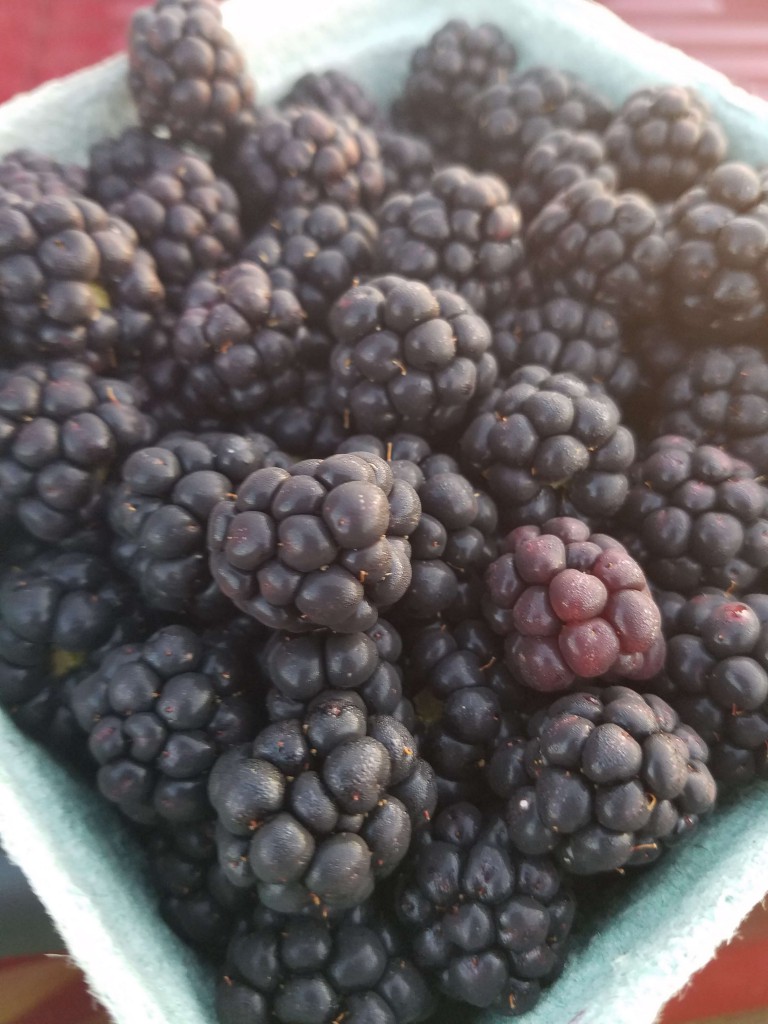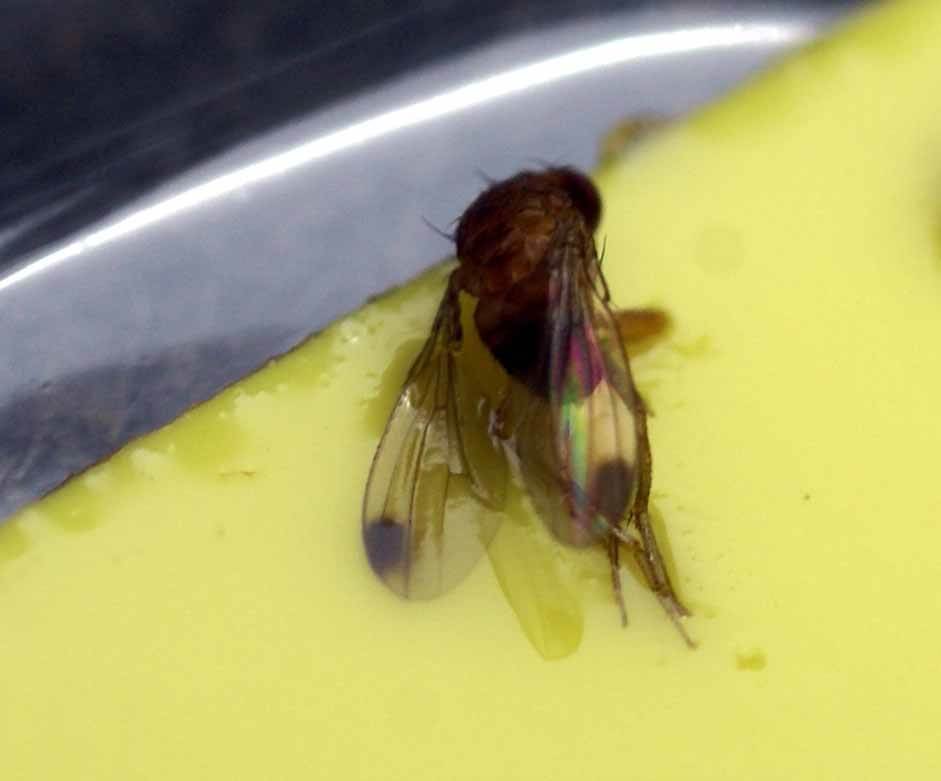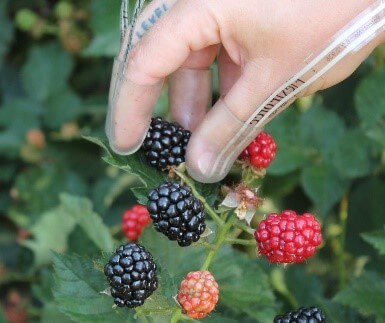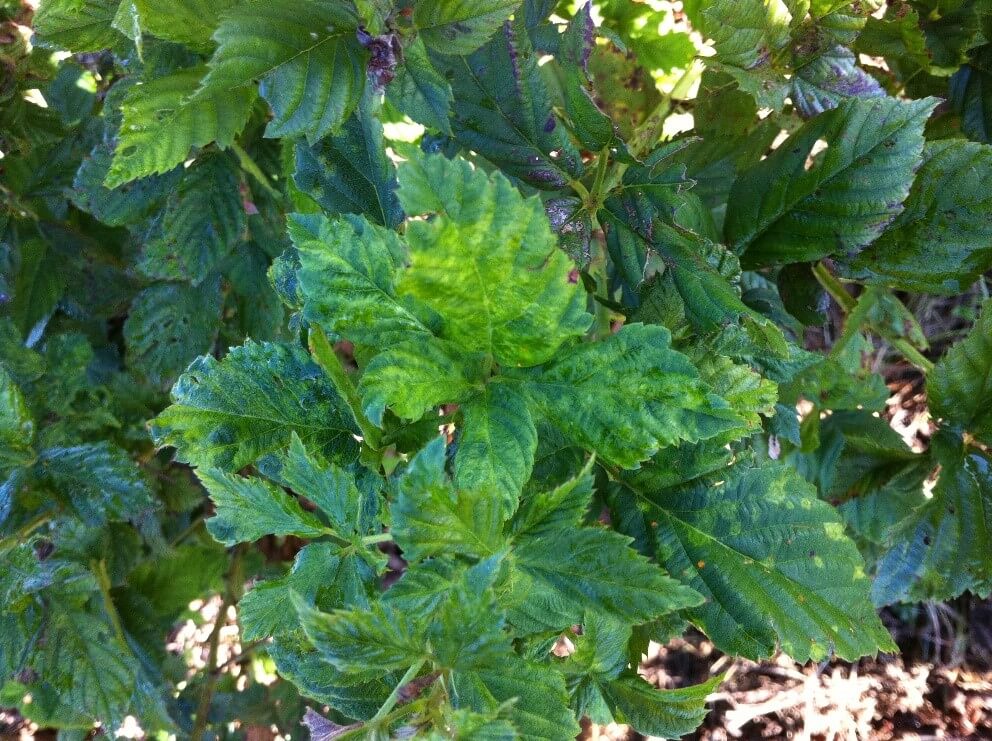Cindy Tucker
-

Small Fruit News Editors: Amanda McWhirt, Doug Pfeiffer, Jayesh Samtani, and Rebecca Melanson Over the last year, there have been multiple efforts to identify the major issues affecting blackberry production in the Southeastern U.S. and priorities for research in this area. In an effort to clearly make some of these issues/priorities known to stakeholders throughout…
Posted in: Spring 2021 -
Margaret Worthington, Assistant Professor of Fruit Breeding and Genetics, Department of Horticulture, University of Arkansas A national survey of growers and related industry professionals was recently conducted to assess the current status and needs for research and extension in the US blackberry industry. The survey was launched with the goal of updating production statistics and…
Posted in: Spring 2021 -
By Dr. Gina Fernandez, Small Fruit Specialist at NC State University Spring 2021 has been WET in North Carolina, at this time, blackberry buds are just beginning to swell (see figure 1). Chores and timing may be somewhat different in your area or for your cropping system. For IPM recommendations and general production practices,…
Posted in: Spring 2021 -

By Douglas G. Pfeiffer, Dept. of Entomology, Virginia Tech, Blacksburg VA 24061 In January 2020, at the Southern Fruit and Vegetable Conference, a group of berry specialists met to discuss current issues in blackberry culture and pest management. This was for the purpose of producing a Pest Management Strategic Plan, an effort led by Gina Fernandez of…
Posted in: Spring 2021 -

By Douglas G. Pfeiffer, Dept. Entomology, Virginia Tech, Blacksburg VA 24060, dgpfeiff@vt.edu Spotted-wing drosophila (SWD), Drosophila suzukii (Matsumura), was first introduced into the US in 2008, first reaching the western states from Asia. It reached the Southeast in 2009, and continued to spread through much of the US through 2012, SWD has presented a huge…
Posted in: Spring 2021 -

By Aaron Cato, Extension Specialist, Horticulture IPM, University of Arkansas The buzz about broad mite seems to have picked up across the Southeast after reports of significant infestations in North Carolina during the 2019 and 2020 growing seasons. Broad mite has been a known pest of Southeast blackberry plantings for over a decade. The majority…
Posted in: Spring 2021 -
By Matthew Bertucci, Ph.D., Assistant Professor, Sustainable Fruit and Vegetable Production, Department of Horticulture, University of Arkansas Weed management is a familiar and challenging issue for many blackberry producers. According to a University of Arkansas survey, over 20% of growers in nine participating states described weed control as their top concern. And I suspect that…
Posted in: Spring 2021 -

By Dr. Renee Threlfall and Dr. Yue Chen Research Team: A.L. Gunderman1, J.A. Collins1, A.L. Myers2, R.T. Threlfall2, and Y. Chen11Department of Mechanical Engineering and 2Department of Food Science, University of Arkansas, Fayetteville, AR, USA Fresh-market blackberries are mostly hand harvested to the maintain quality of this delicate fruit from harvest to consumption. Labor shortages,…
Posted in: Spring 2021 -

By Ioannis E. Tzanetakis, Professor and Director of the Arkansas Clean Plant Center – University of Arkansas Division of Agriculture Plants are not immune to viruses. Unlike many other pests and pathogens, once a plant is infected with a virus, it is infected for life. Blackberry is no exception. The most important virus disease in…
Posted in: Spring 2021 -

By Jonathan E. Oliver, Department of Plant Pathology, University of Georgia Background Numerous cane diseases can reduce the yield and lifespan of caneberries, and the warm, humid environment in the southeastern U.S. can provide ideal conditions for disease development. Among the diseases affecting caneberry production, one of the most devastating is cane blight. This disease…
Posted in: Spring 2021